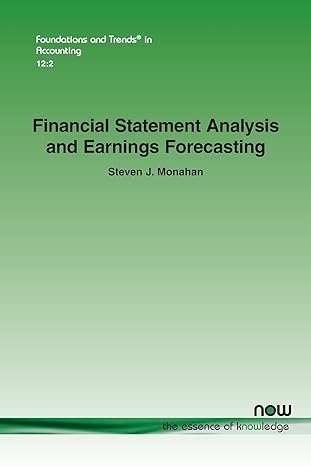Question
Goal-congruence, taxes, different market conditions. TECA Halifax makes kids bicycles. The frames division makes and paints the frames and supplies them to the assembly division
Goal-congruence, taxes, different market conditions. TECA Halifax makes kids bicycles. The frames division makes and paints the frames and supplies them to the assembly division where the bicycles are assembled. TECA is a successful and profitable corporation that attributes much of its success to its decen- tralized operating style. Each division manager is compensated on the basis of division operating income. The assembly division currently acquires all its frames from the frames division. The assembly division manager could purchase similar frames in the market for $480. The frames division is currently operating at 80% of its capacity of 4,000 frames (units) and has the fol- lowing particulars: Direct materials ($150 per unit 3,200 units) $480,000 Direct manufacturing labour ($60 per unit 3,200 units) 192,000 Variable manufacturing overhead costs ($30 per unit 3,200 units) 96,000 Fixed manufacturing overhead costs 624,000 All the frames divisions 3,200 units are currently transferred to the assembly division. No frames are sold in the outside market. The frames division has just received an order for 2,000 units at $450 per frame that would utilize half the capacity of the plant. The order has to be either taken in full or rejected totally. The order is for a slightly different frame than what the frames division currently makes but takes the same amount of manufacturing time. To produce the new frame would require direct materials per unit of $100, direct manufacturing labour per unit of $48, and variable manufacturing overhead costs per unit of $30. Instructions Form groups of two or three students to complete the following requirements. Required 1. From the viewpoint of TECA Halifax as a whole, should the frames division accept the order for the 2,000 units? 2. What range of transfer prices result in achieving the actions determined to be optimal in requirement 1, if division managers act in a decentralized manner? 3. The manager of the assembly division has proposed a transfer price for the frames equal to the full cost of the frames including an allocation of overhead costs. The frames division allocates overhead costs to engines on the basis of the total capacity of the plant used to manufacture the frames. a. Calculate the transfer price for the frames transferred to the assembly division under this arrangement. b. Do you think that the transfer price calculated in requirement 3a will result in achieving the actions determined to be optimal in requirement 1, if division managers act in a decentralized manner? c. Comment in general on one advantage and one disadvantage of using full costs of the producing division as the basis for setting transfer prices.
Step by Step Solution
There are 3 Steps involved in it
Step: 1

Get Instant Access to Expert-Tailored Solutions
See step-by-step solutions with expert insights and AI powered tools for academic success
Step: 2

Step: 3

Ace Your Homework with AI
Get the answers you need in no time with our AI-driven, step-by-step assistance
Get Started


